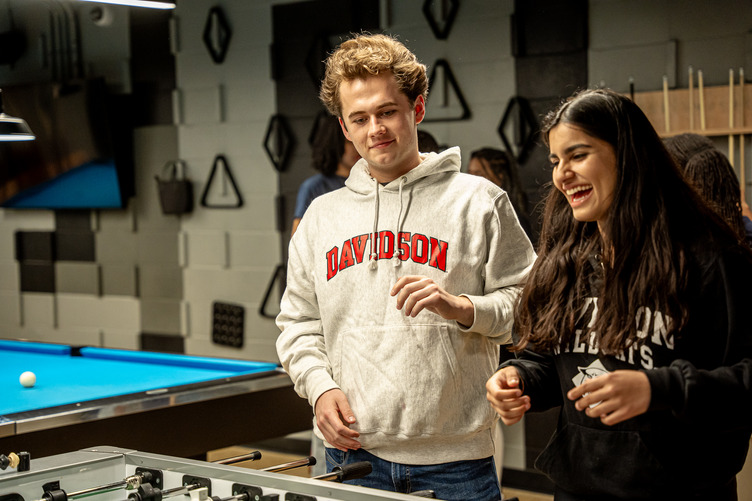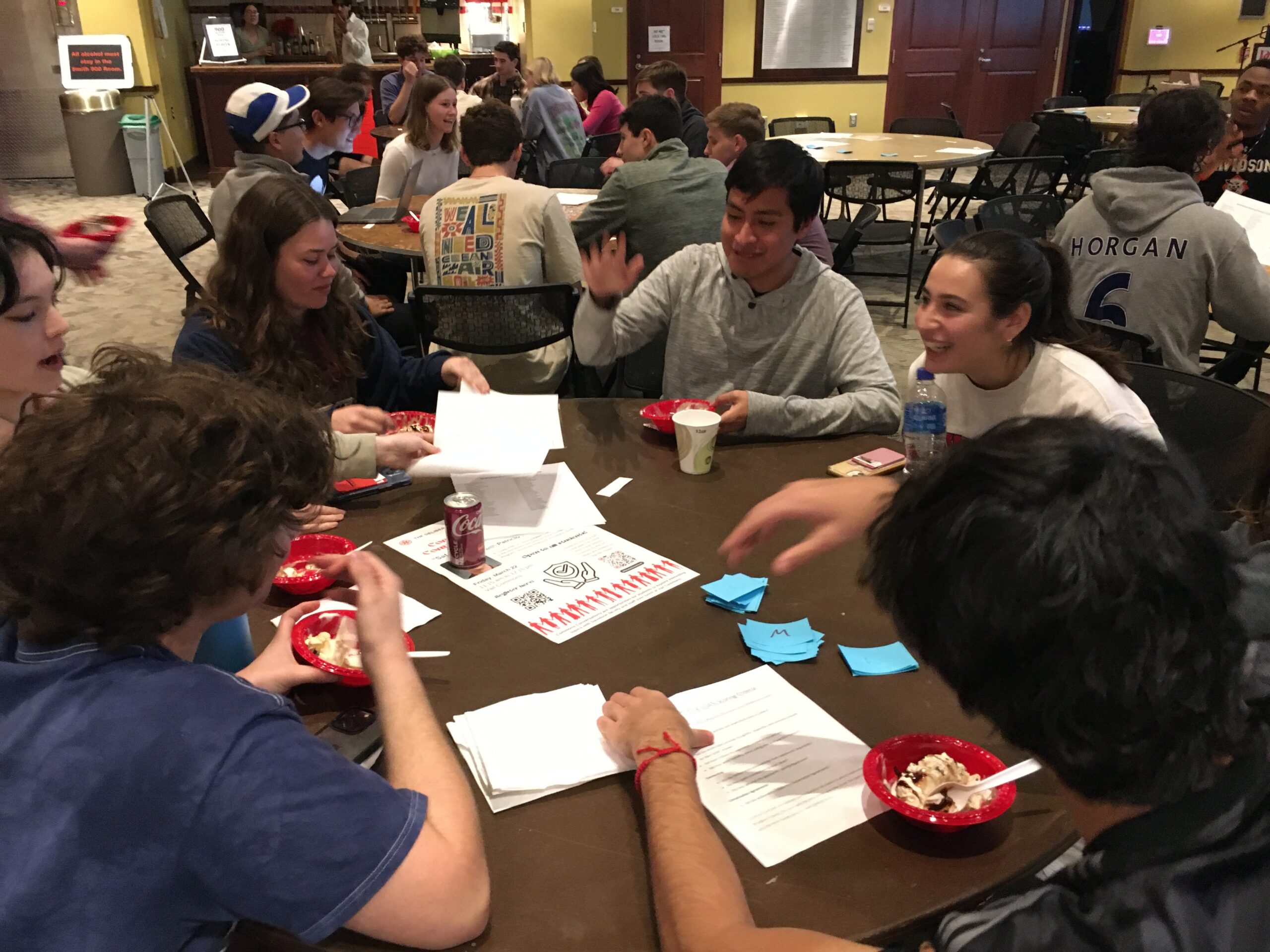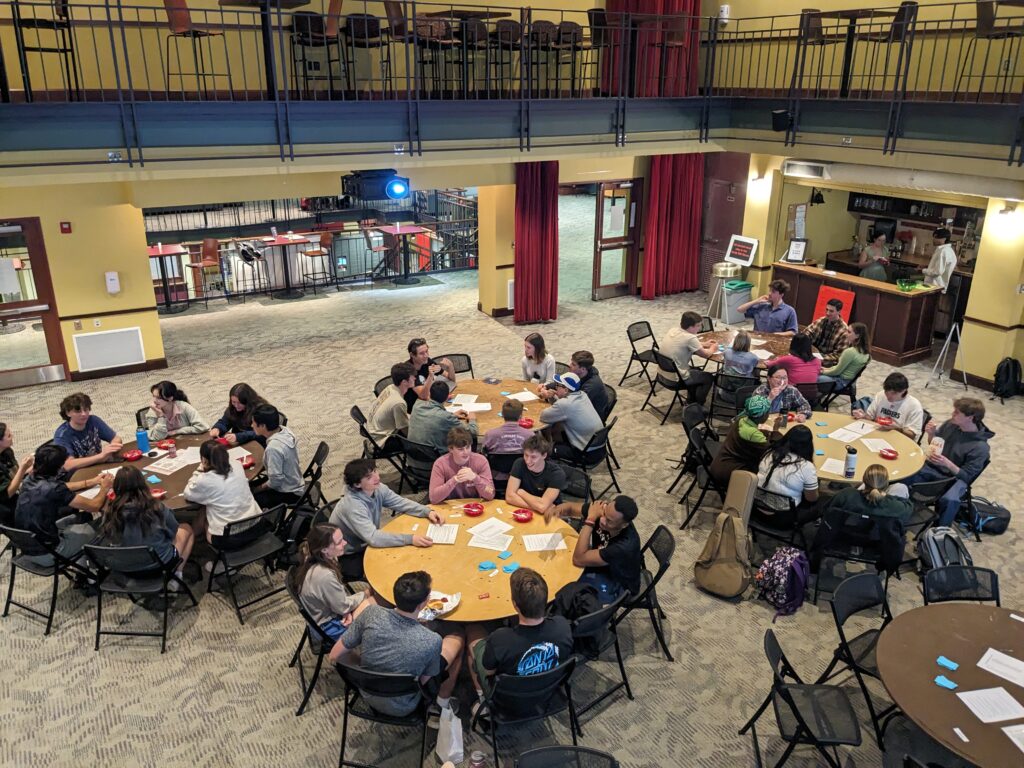
By Arshiya (Arshi) Husain ‘26
This March, I had the opportunity to attend the SNF Ithaca National Student Dialogue at the University of Delaware. Another DCI Fellow, Stephen Walker, and I represented Davidson College amongst a group of over 100 participants from around the country. I interacted with students from various institutions and academic backgrounds: University of Missouri, Howard University, and University of Pennsylvania, to name a few.
The SNF Ithaca Initiative brings together a diverse group of college students to engage in dialogue and learn how to respectfully and effectively engage in discourse in an increasingly polarized world.
When I first stepped foot on the University of Delaware’s campus, I was met with the buzzing energy of folks in buttoned blazers ready for a weekend of meaningful deliberation. The first person I introduced myself to informed me that her ambition in life is to be able to provide gender-affirming care to transgender youth. Others told me they were interested in pursuing careers in environmental protection policy or human rights legislation.
Over the course of two days, I worked in small groups to evaluate the issue of free speech (or the lack thereof) on college campuses around the nation and whether free speech serves as an impediment to DE&I. One case we looked at closely was Liz Magill’s resignation from her presidency at the University of Pennsylvania in 2022. This particular case is centered around the pressure faced by academic institutions to address issues such as antisemitism while effectively upholding principles of free speech. Magill’s resignation, however, highlights a broader, national challenge of colleges trying to navigate freedom of expression in an increasingly politically charged climate.
This experience reinforced the importance of the work that the Deliberative Citizenship Initiative (DCI) does here at Davidson. Many colleges, I realized, lack similar initiatives and increasingly struggle with getting young folks engaged in essential discourse. While there is work yet to be done, the DCI brings Davidson one step closer to allowing for healthy dialogue on campus and helps foster a community where people can be comfortable with having uncomfortable conversations.

I further had the opportunity to sit in on various panel discussions of educators involved in administrative, deliberative, and DE&I work on their respective campuses. One panelist emphasized on the intertwined nature of DE&I and free speech—”you can’t have DEI without free speech,” she said. Diversity, Equity, & Inclusion, both fundamentally and by definition, has to be inclusive of all perspectives and schools of thought. I realized that the societal default has become such that we tend to think of free speech in a context where it is harming marginalized communities.
It is high time that we reframe the way we look at this issue. We must use free speech as a tool to understand the thought processes of our neighbors and communities better—rather than as a weapon to wield in times of divisiveness. I recognize now that those who claim that DE&I and free speech can’t coexist are merely setting up a false dichotomy when, in reality, it is not an either-or situation.
In college settings, especially, it is imperative that students feel empowered to engage in civil discourse on a regular basis. I believe this is a necessary step in creating tolerant as well as diverse communities.





